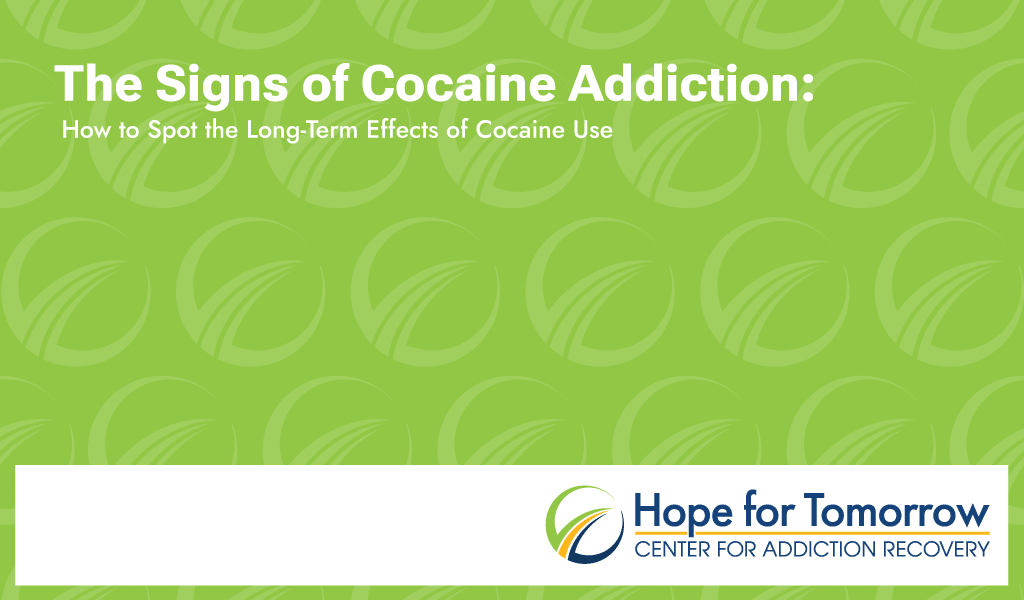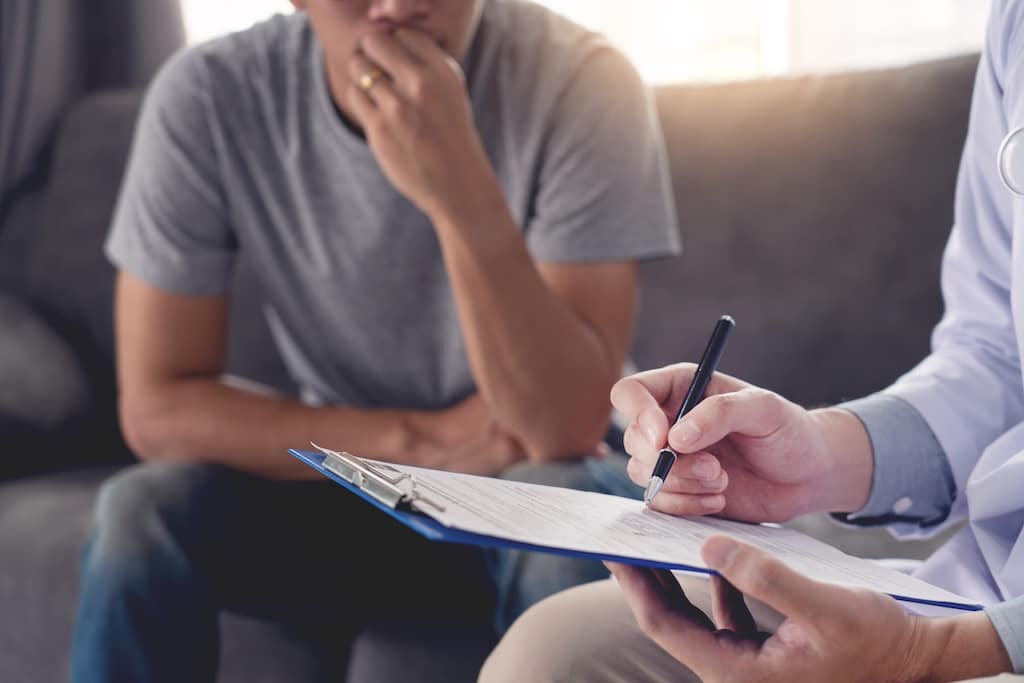

Cocaine use can begin with curiosity or peer pressure. Sometimes it seems like a much-needed escape from the stress of life. Using cocaine once doesn’t mean you’ll develop an addiction, but it is the first step toward a cocaine use disorder. It can become a slippery slope, especially when used as a coping mechanism.
Hope for Tomorrow offers mental health treatment alongside recovery programs for substance use disorders, but before you can get help for your loved one, you need to know the signs of cocaine addiction. We’ll cover everything you need to know in this blog.

Recognizing the signs that someone you love is using cocaine is important. With early and successful intervention, a cocaine use disorder can be prevented. If cocaine is already a large part of the person’s life, recognizing it is the first step to getting them the help they need.
People who take cocaine may have dilated pupils, a runny nose, nosebleeds, hoarseness, sweating, and insomnia. Sometimes, cocaine can even cause strokes, heart attacks, and liver or kidney damage. You may also see physical evidence of cocaine, such as white powder on their face, with razor blades, spoons, and empty plastic baggies among the person’s belongings.
Cocaine causes excitability and euphoria, and can also cause anxiety, depression, mood swings, risky behavior, and restlessness. In some cases, a person taking cocaine may act erratically and even violently. Irritability, paranoia, hallucinations, and delusions can also be side effects.
If your loved one is secretive about their whereabouts, needs money without proper explanations, and wants more privacy than usual, it can be a sign of cocaine use. People often withdraw from family and friends who don’t engage with illicit substances, and stop participating in activities they once enjoyed in favor of using cocaine.
Cocaine use disorder is a health condition. While there aren’t official stages of cocaine addiction, just like heart disease or cancer, there are more consequences and health complications the longer the condition goes on.
Because the first step to developing a cocaine use disorder is cocaine use, you can consider the above symptoms an early warning sign for cocaine addiction. If you find drug paraphernalia, or your loved one is exhibiting multiple signs of cocaine use, it’s worth talking to them about it.
Maybe you’re reading this and wondering if you have a cocaine use disorder. A tell-tale sign of cocaine addiction is building a tolerance to the substance, and experiencing withdrawal when you go a while without taking it. Once you reach this stage, the unpleasant symptoms make it difficult to quit cocaine on your own. While they’re rarely a medical emergency, they’re painful, and the cravings that come with them make it easy to return to cocaine.
Some withdrawal symptoms include fatigue, lack of pleasure, lack of concentration, depression, anxiety, body aches, tremors, and chills.
Chronic cocaine use also puts stress on the cardiovascular system. It can cause irregular heart rate, chest pain, and high blood pressure. Sometimes, it leads to the death of muscles in the heart and blood clots. People who snort cocaine can also cause long-term damage to the nasal passages, leading to breathing complications. It can also cause lung damage. Someone might start having seizures, and cocaine causes the brain to change for the worse.

Reading about the negative consequences of cocaine use disorder can be frightening, and it can also be a wake-up call. If you notice these signs in someone you love, it’s a good idea to plan a talk with them. Show them your unconditional support, and let them know cocaine addiction treatment is available to not only prevent further damage to their life, but lead them to a better one. If you’re managing a cocaine use disorder, help is available. We encourage you to take the first step toward recovery.
Hope for Tomorrow offers treatment for cocaine use disorder, as well as other substance use disorders and co-occurring mental health conditions. Recovery isn’t easy, but it’s achievable, and we’re ready to empower you or your loved one to thrive, no matter your background or history. Contact us at 877-679-8162 today to get started.
Treatment today for a brighter tomorrow.